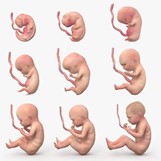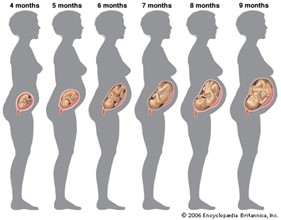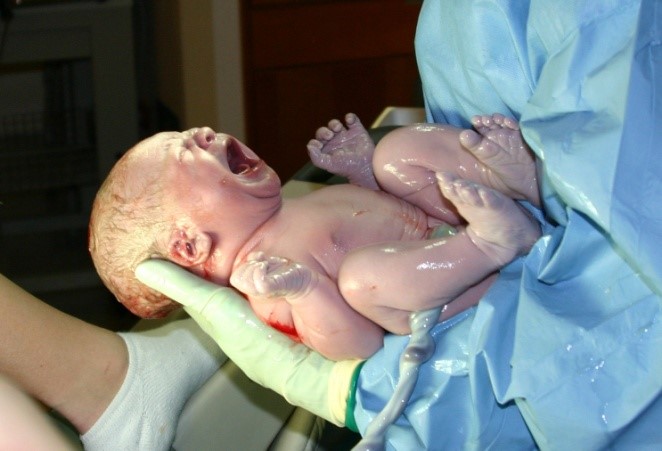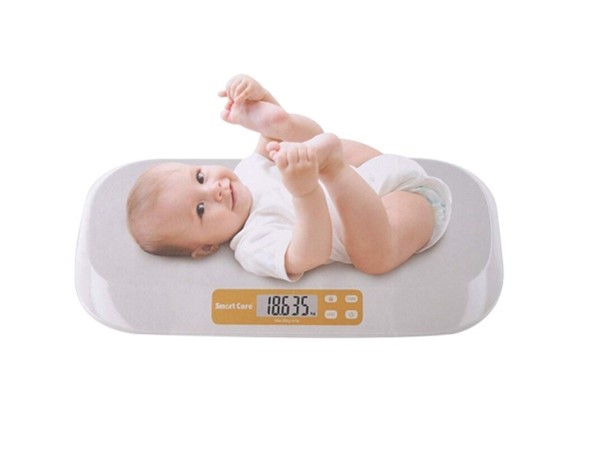Calculating Birth weight is important as it indicates the chances of neonatal growth, survival and future well-being. Assessing fetal weight at different pregnancy stages helps medical practitioners to prevent the risk of low birth weight delivery.
A normal delivery weights 2500–3999 g, low birth weight (LBW) is considered < 2500 g and macrosomia is diagnosed in > 4000 g.
LBW is to be established in delivery weight less than 2500 g regardless of gestational age.

One simple way to look at your baby growing inside the womb is to simply watch the size of your belly when pregnant. While this is the most unreliable method as the baby is surrounded with embryonic fluid and the fetal apparatus which all combines to make up the weight, but still can be considered as a daily watch method to notice the progress.
Your physician best takes note of the fetal growth through ultrasonography scheduled routinely.

All you must know about fetal height and weight
Head to bottom (crown to rump length or CRL) of the fetus is assessed routinely from eight weeks to nineteen weeks of pregnancy. Beyond that, the activity of the baby makes it nearly impossible to get that measurement, so circumferential measurements are done at the different prominence of the body.
Fetal weight at different weeks-
|
Pregnancy week |
Fetal weight |
|
8 |
1 gm |
|
9 |
2 gm |
|
10 |
4 gm |
|
11 |
7 gm |
|
12 |
14 gm |
|
13 |
23 gm |
|
14 |
43 gm |
|
15 |
70 gm |
|
16 |
100 gm |
|
17 |
140 gm |
|
18 |
190 gm |
|
19 |
240 gm |
|
20 |
300 gm |
|
21 |
360 gm |
|
22 |
430 gm |
|
23 |
501 gm |
|
24 |
600 gm |
|
25 |
660 gm |
|
26 |
760 gm |
|
27 |
875 gm |
|
28 |
1 kg |
|
29 |
1.1 kg |
|
30 |
1.3 kg |
|
31 |
1.5 kg |
|
32 |
1.7 kg |
|
33 |
1.9 kg |
|
34 |
2.1 kg |
|
35 |
2.4 kg |
|
36 |
2.6 kg |
|
37 |
2.9 kg |
|
38 |
3.1 kg |
|
39 |
3.3 kg |
|
40 |
3.5 kg |
Although this is an international guideline, a deviation of more than two weeks up or down may demand further investigation.
Weight at Birth-
An average Indian baby is reported to weigh between 2.5kgs and 2.9kgs when born at full term.

What affects birth weight?
Numerous factors decide the birth weight of the child. Here we explain some of the possible reasons that may contribute to the birth weight of a child-
- Diet and weight of mother-
It is directly proportional to the weight of the baby. An overweight mother tends to have a heavier baby, while a malnourished mother will deliver a comparatively smaller baby.
- Mother's prenatal health-
Drinking, smoking, uncontrolled glucose tolerance may harm a newborn's health.
- Genetics of parents-
The baby will resemble the physic of his/her parents.
- Mother's age
The age of the mom at the time of pregnancy also plays a crucial role. Younger age/ teenage mom is shown to have low-birth-weight babies.
- Gender of the kid
Usually, the boy child is heavier than that of a girl child.
- The sequence of the child
The first child is usually seen to be of lower weight than that of the second one.
- Number of the fetus in the womb
A couple of twins will have a lower birth weight than the single one.

Is weight loss concerning in newborn?
If the weight loss is 5 to 10 percent of that at birth, then it is completely normal. Babies tend to lose fluid after birth, which is normal for the initial five days. The baby then starts gaining weight and may reach the normal birth weight in the next 10 to 14 days.

References
Source:
1. Anggraini, D., Abdollahian, M. & Marion, K. Foetal weight prediction models at a given gestational age in the absence of ultrasound facilities: application in Indonesia. BMC Pregnancy Childbirth 18, 436 (2018). https://doi.org/10.1186/s12884-018-2047-z



